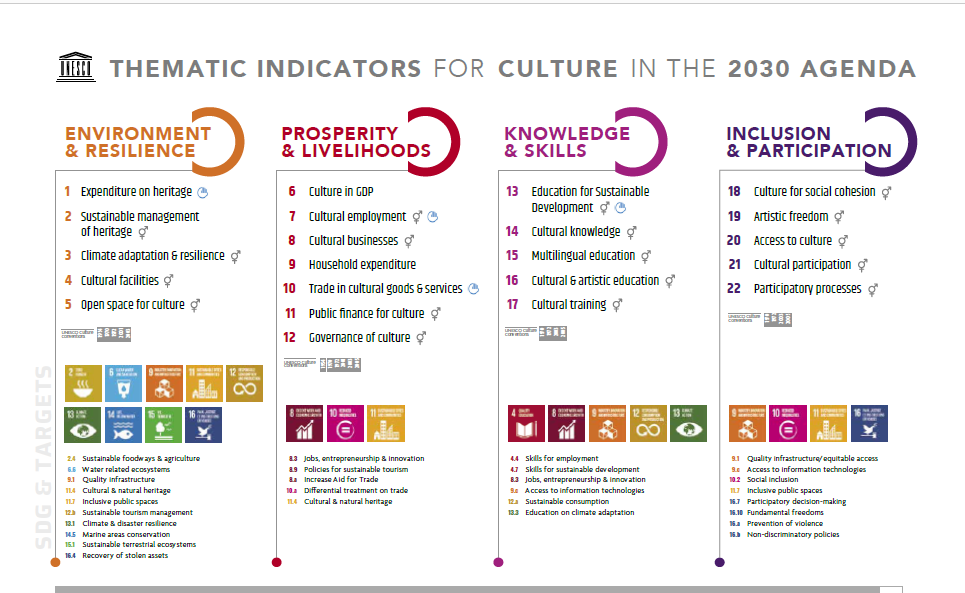CULTURE | 2030 – Culture and sustainable development
Within the framework of the UN Agenda 2030, Culture Indicators are an instrument identified by UNESCO to facilitate people involved in cultural programmes to make informed choices for projects to be developed.
Culture affects 14 of the 17 SDG (Sustainable Development Goals) proposed by the Agenda and contributes across each of the five critical dimensions of sustainable development: people, planet, prosperity, peace, partnerships.
With CULTURE | 2030 UNESCO identifies 22 qualitative and quantitative indicators to assess the contribution of culture that can be applied at urban and national level. They are divided into 4 groups:
- Environment and Resilience
- Economy and Prosperity
- Knowledge and Skills
- Inclusion and Participation
Inside the document you can find a technical sheet for each indicator in which they are specified the intent, the possible sources from which to find the data (at national and urban level) and methodological indications for the construction.
The development of the Culture | 2030 indicator framework started in 2017, with the review of existing methodologies to measure culture in relation to development in general.
The review also included methodologies developed and implemented by UNESCO and other global partners in recent years to measure culture, in the specific context of Agenda 2030, to facilitate their convergence towards SDG and improve existing tools and data, including periodic accounting mechanisms of Cultural Conventions and other audit systems and methodologies.
To find out more:

